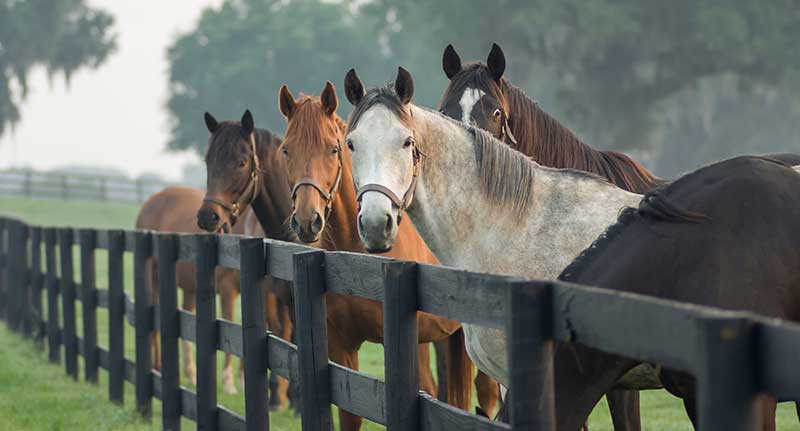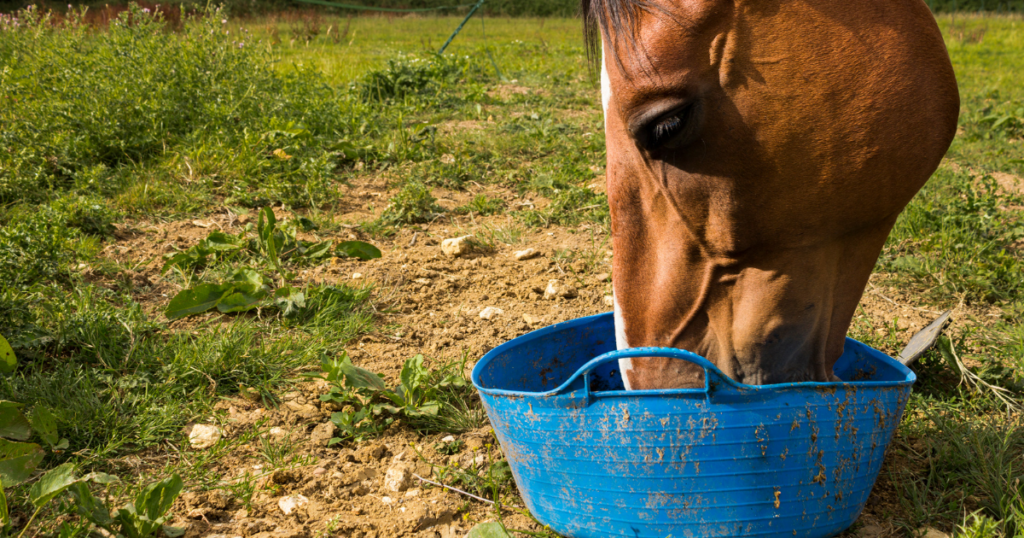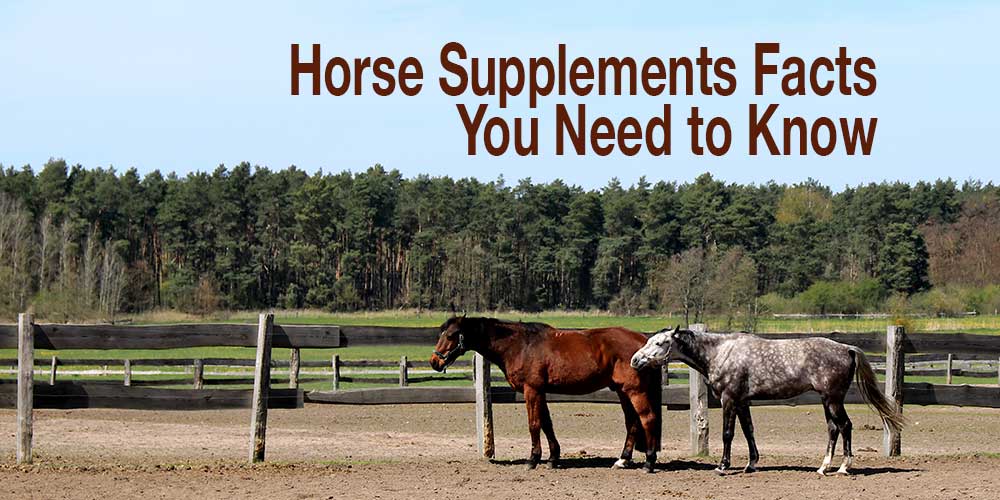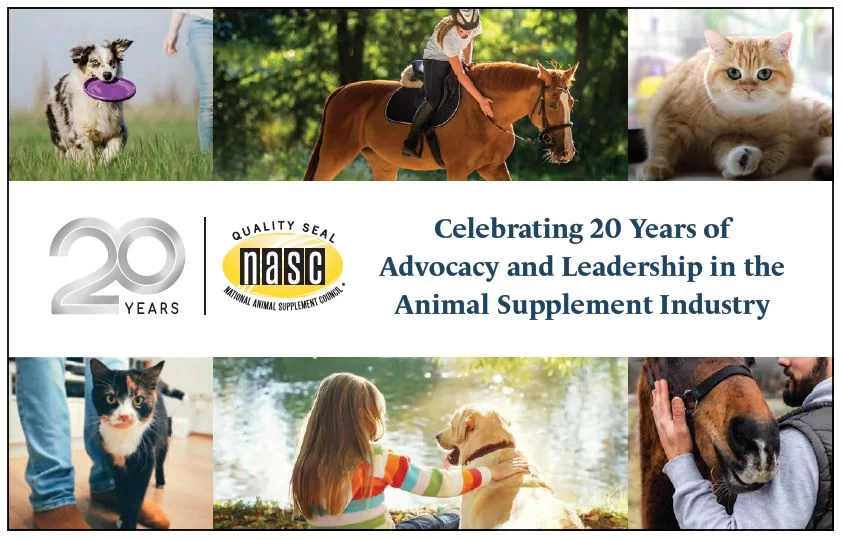Loving My Horses Means Getting With The Program
by Nikki Alvin-Smith
The dynamic factor in a horse’s microbiome is an impossible variable to ascertain at this time in the stall side scientific research realm. Knowing what works in all aspects of care and training for each individual horse in your own private yard is hard enough. But when you add in trying to help out boarders horses’ needs and optimize the nutritional offerings and schooling programs for every horse in your barn, life gets complicated fast. I’m truly happy that I discovered the details of the horse’s microbiome as far as it is known in science today, because for our yard of advanced level dressage horses and youngstock the knowledge has been a gamechanger. And not in ways I at first expected.
I’m Saving Money
Like most people I dislike wasting money. And when I began as a professional in the horse world decades ago, I was just like everyone else. Offers to solve behavioral issues or physical shortcomings through equine feed supplements for my ‘neds’ was too titillating to pass up, and when a field vet or farrier recommended something to improve the well-being of my horses I was quick to saddle up for the ride.
Well, you live and learn. And for my husband Paul and I ( he’s also a Grand Prix competitor), figuring out that there are no quick fixes, magical solutions, or shortcuts to ensure good gut health and thus great overall well-being in a horse was a process. Like most horse trainers, I’ve always been interested in science-backed research of everything I do in life, especially when it comes to what is ingested. And also like most horse trainers, for a bit there I was going along plonking down a credit card on a tack shop counter or plugging it in online, to buy tub after tub of feed supplement, all for different purposes, theoretically at least.
When I woke up from this misconception that more was better but that indeed a better targeted approach was needed, I realized that I was not only not doing the best thing for my horses, and frankly, could actually be causing some harm. In rapid succession I also figured out that I was also wasting money. And a fair amount of it when I added it all up (computers are great at telling us just how things are and totally unforgiving when it comes to telling you how poorly you are spending your money).
Stepping Back and Stepping Up
Once I stepped back and took a good hard look at all those pots, potions and pastes on the feed room counter, some stacked on shelves and some on hand with instructions scrawled on the white board for which days which horse got what, I realized that perhaps all my efforts were off track. When I read labels and saw duplications of vitamins, minerals, amino-acids, and all the rest, saw different brands and various formulations that differed considerably in their quality of ingredients (such as no mention of stabilized ingredients where they should be etc.), I concluded that things had become a bit out of hand.
SO I stepped up and began a deep dive into the marketplace of ‘complete’ products and in particular to the gut health and the specs of the equine microbiome.
This was many years ago, and I have not regretted keeping abreast of the scientific developments and developing a keen understanding of what goes on inside our horses not just biomechanically, but also at the cellular level.
Excited About Microbiome Health
As my Grand Prix horses went from babies to elderly statesman, their metabolic and health challenges obviously increased as they do for all of us. Our joints become less mobile, our brainboxes become more easily stressed and we have less ability to navigate digestive upsets and can easily suffer with our bodies becoming out of sync efficiency wise.
For my horses identifying the benefits of boosting their microflora and aiding their microbiome to be more efficient whatever changes of the moment it was experiencing, was evidently an ongoing wellness support that I needed to identify and manage. We are all after all, very much what we eat. And piling on too much of any one thing is not good for us.
My English grandmother used to oft repeat the saying, “ A little bit of what you fancy does you good.” And there is likely truth to that. That might be an apple a day, or for my husband who hails from Lincolnshire and a northern fishing town, it is to have an oily fish ( mostly mackerel because it was cheap off his grandfather’s boat when he was a kid but now we go for kippers (herring) and fresh caught sustainable salmon) once a week. Think of all those Omega delights in those fishes and the benefits somehow already known even centuries ago by fishing families.
But of course our horses don’t have much choice in what they ingest. We decide. And the question is, are you deciding wisely? Are you truly a good guardian of their wellness.
Don’t Wait Until It’s Too Late
It is human nature to wait until something goes horribly wrong to examine our habitual lifestyles and what they include. This is particularly true of health issues. When my mother-in-law died of colon cancer, I began to seriously evaluate everything my kids ( and us) were eating. Alongside that came concern also for our dogs and horses and everything in their environments too.
Then my younger brother died from pancreatic cancer. Then my late father started having skin cancer issues. Then I experienced a triplet of cancer types, including just a few years back a run-in with breast cancer and most recently removal of a tumor buried on my face below my eye. All these events combined to make me aware that we truly do need to manage our environment and also be prudent about what we ingest. It is important we know the provenance of a food product; its quality; are confident that it isn’t contaminated and that we are actually getting in a product the quantity of each ingredient promised, without fillers and arbitrary unknown or unproven formulations.
Dipping In To Just A Few Tubs Now –
Thankfully we have almost never (in our 38 years breeding and training/showing horses counting over a hundred at this point) lost a horse due to colic, choke or disease except for three horses. One was 27 years young and died of a cancerous gut lesion, two others suffered kicks from other horses that caused major injuries requiring euthanasia that included a broken femur and a neck injury. I do believe in part this is because we’ve been proactive in managing the digestive health of our horses and their individual nutritional needs, always treating each as a unique case. We also realize that for all we do there is always more to know and more we could do for our animals’ wellness support and are consistently updating our knowledge as science provides better evidence of what works how, why and what does not.
After continued diligent research I know so much more about how important the right feed supplement program is and am very pleased with both the results my horses’ experience in wellness as a direct result of such analysis and knowledge as well as the dollar savings I enjoy by making educated supplement choices.
For our horses, dogs and other pets, what we feed, and in what quantities needs to be equally balanced and carefully researched and thought about. The reality is our field vets are great but are too busy to do it. Our farriers are great, but they are not nutritionists. Loving your horse means getting with the program! And that means a macro look at the microbiome for each individual horse and investigating your own backyard feed and forage offerings.
Discover more about how natural joint supplements for horses can make a significant difference in your equine care regimen. Dive deeper into our comprehensive guide on equine nutrition and wellness by visiting our website.
About the Author

Nikki Alvin-Smith is a seasoned freelance writer who loves to share her lifelong experience with everything horse, rural lifestyle, and travel. Her works have been printed in more than two hundred fifty equestrian magazines worldwide and her published articles number in the thousands.
A Brit who has called New York home for more than 40 years, Nikki brings a unique perspective to her writing. Her experience as an international level Grand Prix dressage competitor, coach, and worldwide clinician, with a youth spent showjumping and foxhunting, provides lots of educational truths and fun moments to share with the reader. Additionally, she has been a horse breeder and importer of Hanoverian, Dutch and Iberian horses for more than 25 years. Together with her husband Paul Alvin-Smith, who is also a Grand Prix rider, operates Willowview Hill Farm, an organic hay farm and private dressage yard in the beautiful Catskill Mountains of New York.
Visit nikkialvinsmithstudio.com or horseinakiltmedia.com to learn more.





